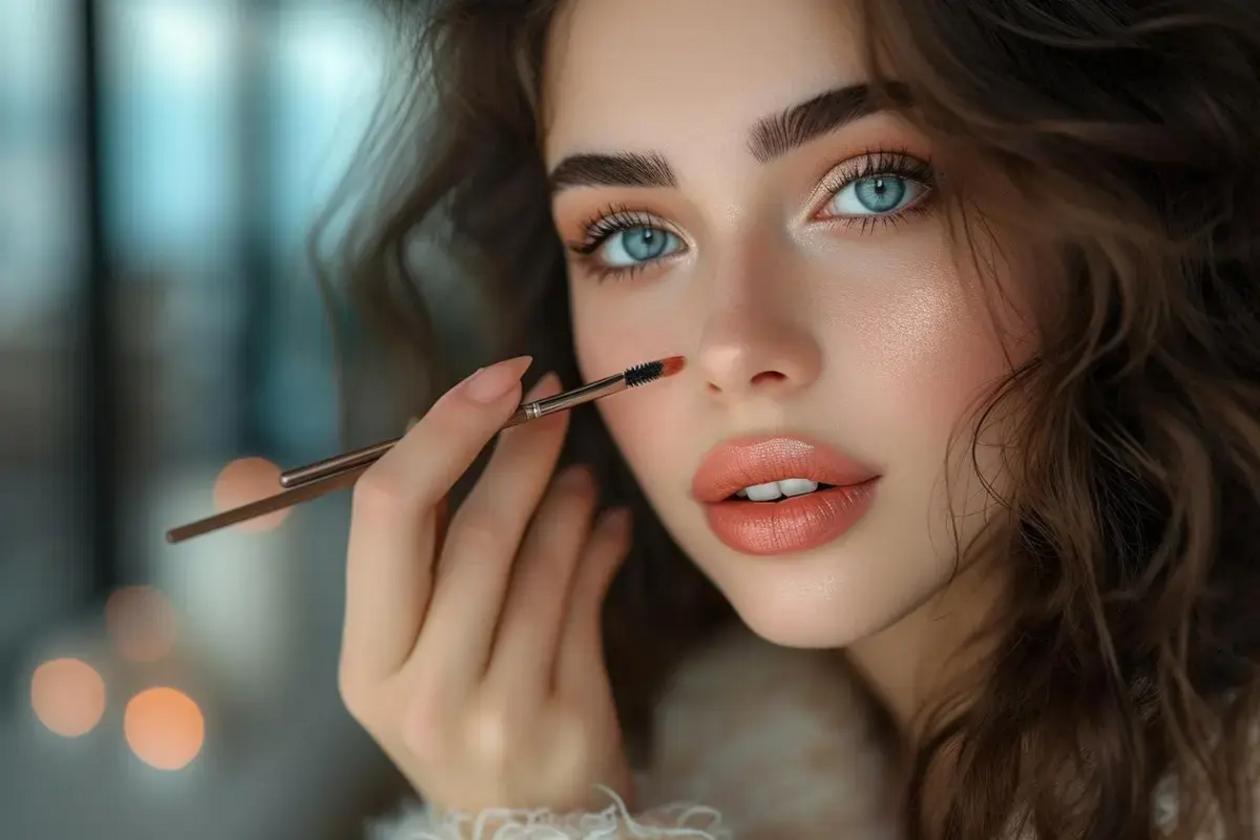Makeup, much more than a palette of colors and a series of gestures intended to beautify, is a subtle and profound expression from the inside out. It transcends the aesthetic to reach a psychological dimension that deserves to be explored. The act of putting on makeup is not just a beauty routine, but a game of mirrors between who we are and how we wish to be perceived. This article delves into the depths of makeup and its psychological meaning, questioning what it really means to wear makeup, beyond the aesthetic trappings.
The historical imprint of makeup
Makeup is not an invention of modernity; it has its roots in antiquity. The original motivations for its use go far beyond simple aesthetic beauty, blending into ritual and symbolism. The Egyptians, for example, used kohl to protect themselves from evil spirits and signify their social status. Over the centuries, makeup has evolved, reflecting beauty standards, power, and even social movements. These historical practices underline a constant: the desire to psychologically embody a certain reality or aspiration, whether of a spiritual, statutory, or conformity nature.
Makeup as an extension of personality
A person’s makeup bag is often a mirror to their soul. Applying makeup can be seen as a act of communication of oneself, a way of illustrating parts of one’s personality or mood. By emphasizing a particular trait, we can express confidence, reserve, or even rebellion. Makeup thus becomes a powerful non-verbal language, where individual character takes shape through brushstrokes and shades of color.
The psychological effects of makeup on the individual
The impact of makeup on self-confidence is manifest. Many people feel more equipped to face the world when their face reflects their best image. Makeup can act like armor, boosting psychological well-being and self-esteem. However, excessive use can suggest a quest for unreal perfection, or even an addiction where makeup masks deep-seated insecurities rather than assuaging them.
Areas of the face in the spotlight: eyes and lips
Choosing to emphasize the eyes or the lips is not trivial – it is a decision tinged with psychology. The eyes are the mirror to the soul, and by applying makeup to them, one can seek to connect or captivate. Accentuating the lips, on the other hand, can be associated with sensuality or the expression of speech and ideas. This focus strategy reveals desires and messages that we wish to project consciously or unconsciously.
The psychology of colors in cosmetics
The colors chosen for our makeup silently speak about our states of mind and our emotions. Bright hues can reflect a bold spirit, while softer palettes can indicate a calm or contemplative disposition. Research in color psychology demonstrate that these influence our mood and even our behaviors, making makeup a powerful tool for shaping our inner experience and the perception that others have of us.
Ultimately, putting on makeup is an act loaded with psychology, which stretches a thread between intimate desire and the external image. Whether by the choice of colors, the part of the face highlighted or the historical and cultural reasons for its use, makeup is a fascinating mixture of aesthetics and psychology. It continues to be a means of individual expression and a reflection of the complex interactions between being, society and time.

